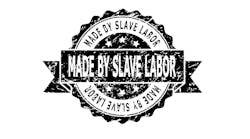Interestingly, in a session focused on market trends, Mike Gonzales, president and CEO of HK Systems, said, “Labor changes are at the top of the list of market drivers. We have to attract and manage a more diverse talent pool.”
More specifically, in the session entitled, “The Next Generation Workforce,” Liz Richards, executive vice president of MHEDA (Material Handling Equipment Distributors Association), laid out MHEDA’s Gateway Project—an exceptional program designed to attract college students to the material handling industry and help companies find new talent.
“What’s needed,” she said, “is more participation from you. Managers have to post company openings. You need to start looking at resumes and expressing the kinds of things you need.”
After the presentation, I asked Gregg Goodner, president, Hytrol Conveyor, about the employment situation in his region—Arkansas. He said his company already has an internship program in place into which it takes six students a year and runs them through all the jobs, from product design on up.
“College students aren’t the problem for us,” said Goodner. “It’s getting tougher all the time to find skilled workers. And, then, software engineers…” His voice trailed off as he shook his head.
Just so happens that MHIA is stepping up to the plate with some exciting programs you’ll read more
penton.com
about after the big rollout at ProMat in January. Allan Howie, MHIA’s director of continuing education, gave us a preview of what’s to come. There are a lot of things in the works with vocational schools. There will be an entire pavilion area at ProMat dedicated to workforce issues.
I also discussed the employment situation with Steve Ackerman, CEO, FKI Logistex. We talked about making a factory more worker friendly. He said one thing they’ve done in his metal-bending shop in St. Louis—where any day can be hot—is adjust summer work hours so employees don’t have to work through the heat of the day. It’s those little things that enlightened management does that go a long way in employee attraction and retention.
Mike Romano, CEO, Associated Material Handling, and long-time MHEDA supporter, shared the podium with Richards. “Material handling has to be viewed by our customers as having strategic value, like any other part of their businesses,” Romano said.
The material handling industry is a mosaic. It’s a design made up of many tiny, colorful pictures, strategically arranged to show something bigger and brighter than any of the individual pieces. Have no fear. MHIA—as the creator of this mosaic— and the companies that play in this $150 billion sandbox, will come together to solve the crises they share singularly and collectively.



